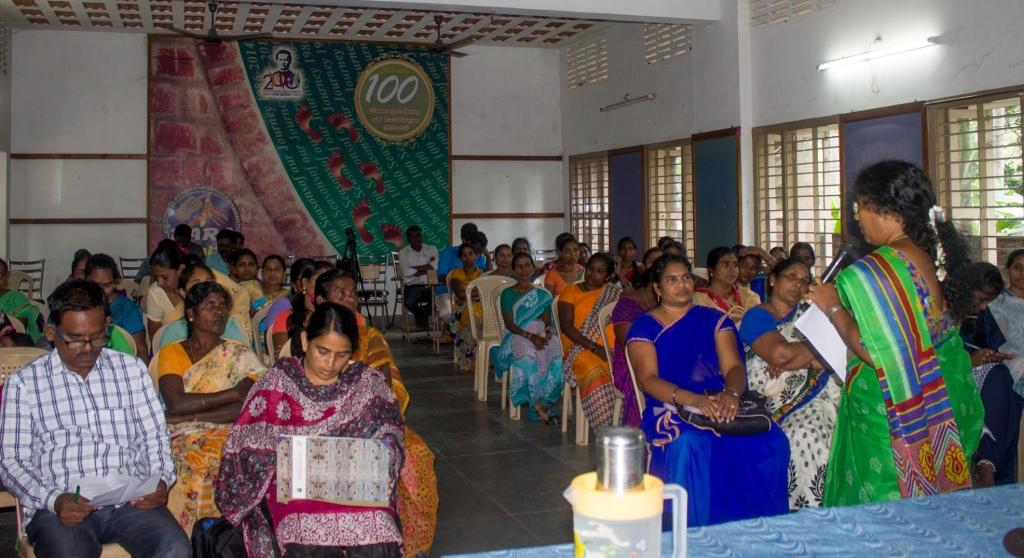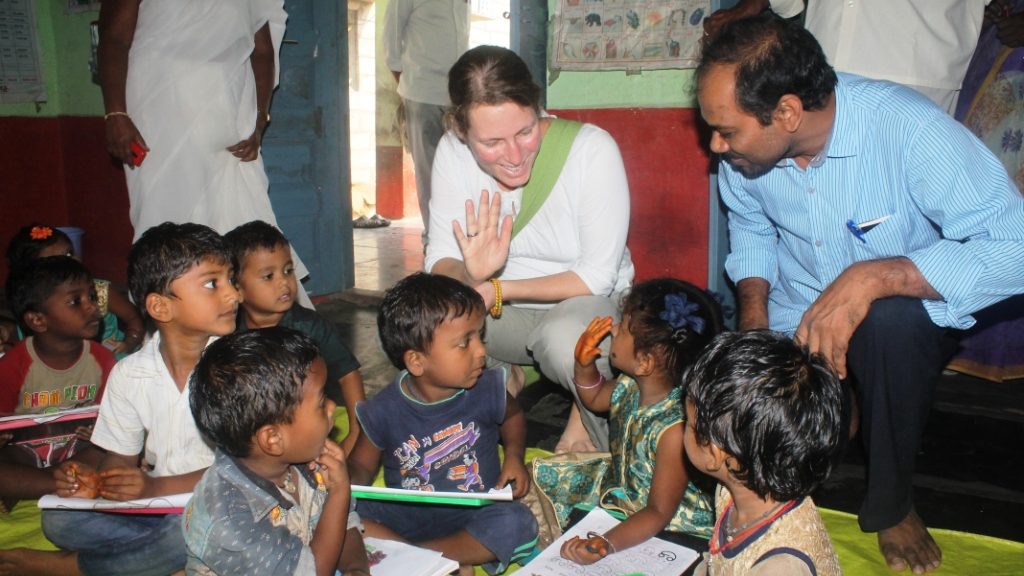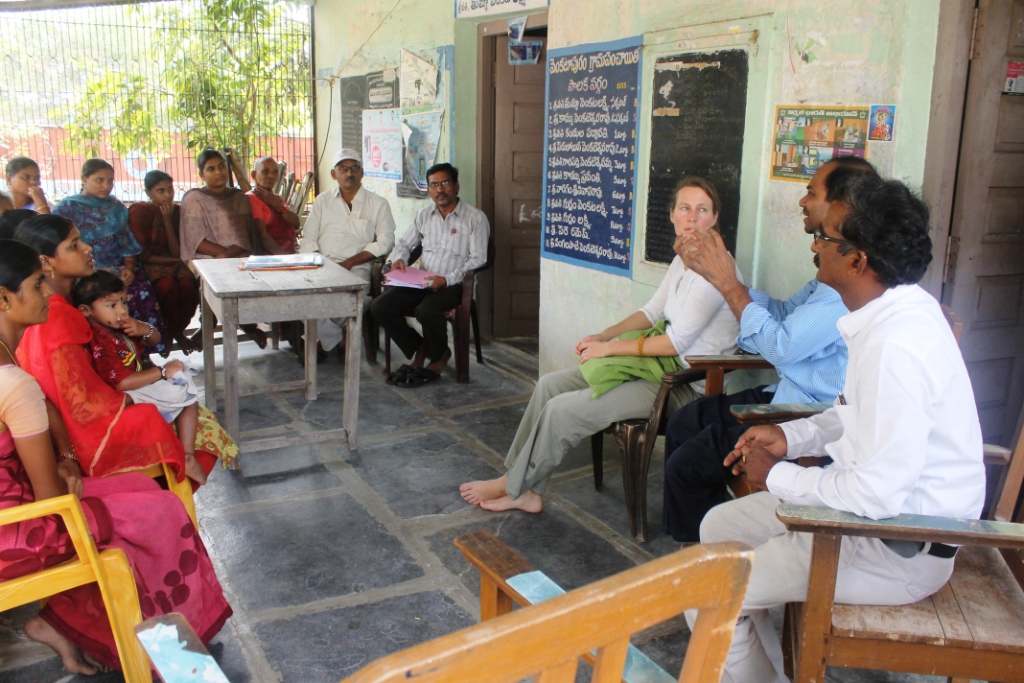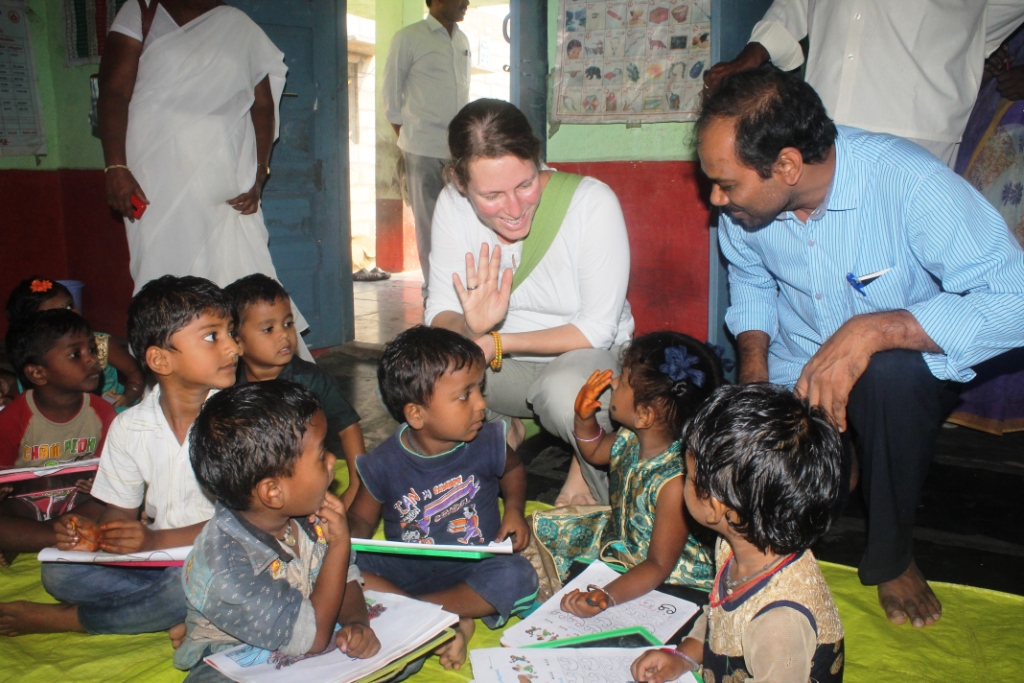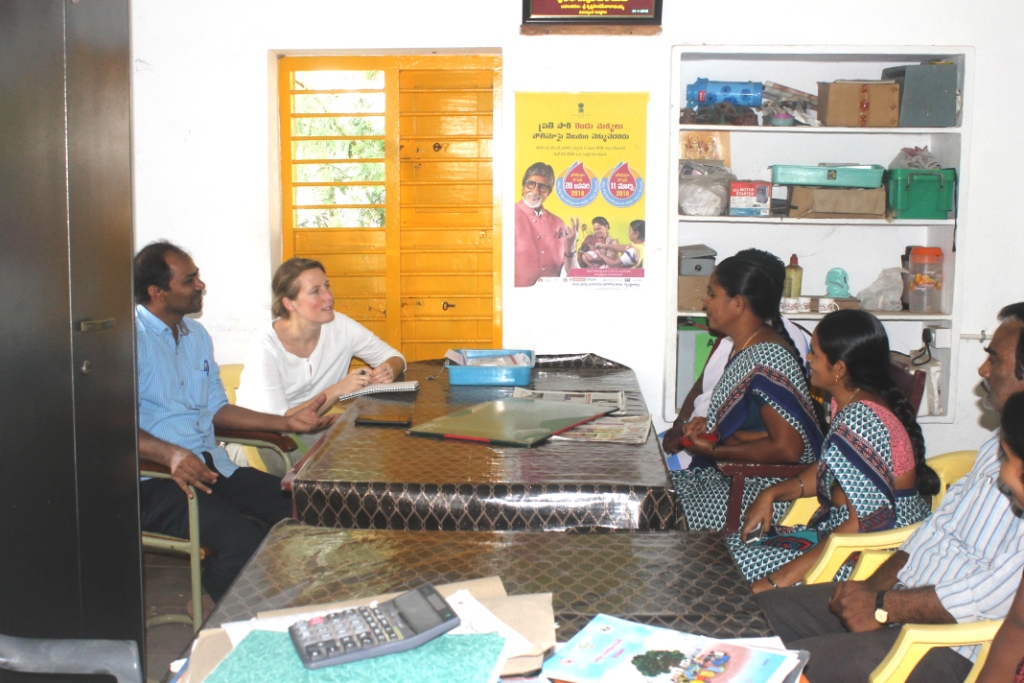March 23 was a Day of Days, literally, celebrating 6 international days of March at a special workshop with the local women leaders. Beginning with March 8th, the International Women’s Day, the month of March has assumed special significance for us at People’s Action for Rural Awakening (PARA), Ravulapalem, Andhra Pradesh, India as the month of “March” towards Equality.
Here we look at everything from the lens of Human Rights and equality,and every day is seen as an opportunity to promote dignity with equality. Focused on our work to prevent domestic violence and sexual exploitation, we saw March 4, the World Day of Fight Against Sexual Exploitation, as an important opportunity for raising awareness on our efforts.March 10 is the Birthday of Savitri Bhai Phule (1831-1897), who started the first girls’ school in India (1848) and was a social reformer who fought against untouchability and caste and gender discrimination, and is the day on which PARA usually celebrates Women’s Day.
What prompted us to choose Saturday, 23rd March, for the special workshop was that 24th March is the International day for the Right to Truth of Human Rights violations and for Dignity of victims. We could not also not overlook the fact that March 25, the International Day of Remembrance for the Victims of Slavery and the Transatlantic Slave Trade, when women and girl children are so frequently traded as slaves in the current times.
A programme was organised to weave all these days into a single programme. The obvious choice was to hold a workshop on these themes with the participation of the Village and Mandal Committee Members. These women leaders are to spearhead the campaign for “0” incidence of domestic violence and sexual exploitation in their respective villages. On 23rd March,over 70 women and men working with women for equality, gathered at PARA to discuss the issues surrounding these themes.
A.P.J. Vinu, a practicing psychologist-cum-motivational speaker, was the main resource person of the workshop. Mr Nakka Isaiah moderated the sessions. Based on the theme of March 4, Ms. Sesha Ratnam of PARA Gender Desk spoke of sexual abuse and exploitation. Ms. Appayamma from Bhumika spoke on Domestic Violence. Ms Ramya Dasari presented a case study of how this situation was being addressed by the Gender Desk team. After common sharing on the theme, Ms. Subbayamma, in-Charge of the Differently Able People’s Collective, summarised the responses pointing out the danger of prejudice against the victims.
The women’s Day theme #Balanceforbetter provided the setting for discussion on moving towards Gender Equality. Ms China Durga, the District Coordinator, spoke of the efforts being made through the Human Rights Clubs in schools to take up issues of violation of child rights and support for the girl children to stand up and be respected as equals. Ms Pushpa, a MSW student, spoke enthusiastically about working together for equality and her wanting to join the movement as soon as she finishes her studies this year. Mr Ratnam, who leads the Mutually Aided Cooperative Societies for women in four mandals, waxed eloquent in speaking of their efforts to promote women’s right to equality.
After lunch break, it was the turn of Mr. Job P.J., a veteran in many struggles for liberation from bonded labour and for gender equality, to speak about the International Day for the Right to the Truth Concerning Gross Human Rights Violations and for the Dignity of Victims being celebrated on March 24. An admirer of Archbishop (now saint) Oscar Romero and a follower of Liberation Theology, he introduced the need to understand the truth of Women’s reality vs Men’s reality that maintains the present hierarchical system of inequality. He was backed by Mr Srinivas, Childline Coordinator and Mr Ramesh, State Coordinator for Human Rights Clubs with live examples to indicate the frequent incidence of Child Labour, Child Marriages, domestic violence and so on. The women were seen to face continuous human rights violations in domestic and social contexts. The sad fact remains that the Men’s Reality reflected in the hierarchical functioning of authorities ends up supporting the perpetrators of crimes against women. This truth must be recognised for the situation to change. Oscar Romero,whose courageous call to resist even the authorities in the service of human dignity and rights, led to his being murdered by the agents of the state on 24th March 1980. This is often the need today, even in the land of the Mahatma who defied the power of the British Empire and invited others to do the same. This day was declared by the UN in 2010.
A gross misunderstanding now-a-days is that slavery is a thing of the past. The UN General Assembly resolution of 17th December 2007 that instituted March 25 as an International Day of Remembrance for the Victims of Slavery and the Transatlantic Slave Trade called for programmes to communicate and to act against the dangers of racism and prejudice. The present workshop was a forum to put to the audience the tragic consequences of treating women as objects of exploitation and trafficking, much the same way as the victims of transatlantic slave trade. This day was celebrated on 25th March along with Bhumika when the PARA gender team joined #GlobalBillionWomenMarch.
Mr Saka Raja Rao of the Bahujan Desk spoke of the tragedy of human trafficking as modern day slave trade. Ms. Sesha Ratnam spoke of similarity of the slave trade and the bondedness involved in the current domestic labour market and trafficking of domestic workers to the Gulf countries. Ms. Gogulamudi Sandhya Rani presented live examples of issues being grappled with by the gender desk team with the cooperation of the Immigration Desk of the Government of India and Indian Embassies.
One could not fail to notice that the country has been relegated to an ignoble 140th place in the Global Index of Happiness out of 156 nations assessed. The citizen’s attitude to its women as equals in every way can transform this situation to one of genuine happiness among the people of this ‘great’ nation. Incidentally, March 20 is the International Happiness Day. After the election of the members for the district Committee, the participants pledged to join the campaign to make their villages and Mandals places with “0” incidence of domestic violence and Sexual Exploitation. The Days of the month of March: 4th, 8th, 10th 20th, 24th and 25th are reminders of past and present tragic situations as well as challenges to realise the hope that the future holds in terms of equality, dignity and truth and can lead to genuine and lasting happiness.

